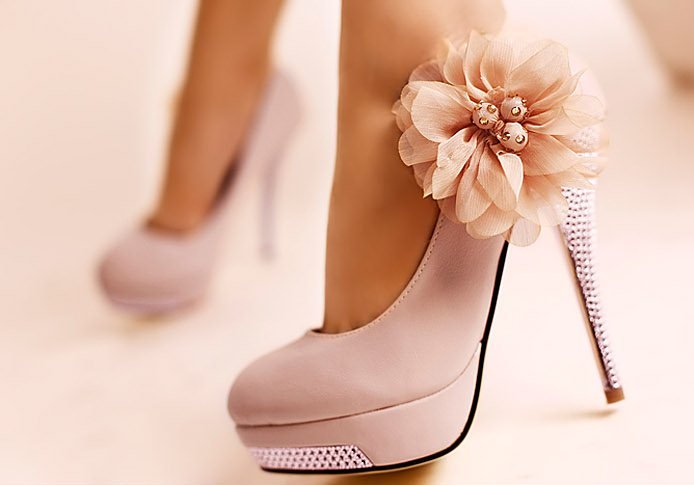
Blood, Sweat & Heels: what happened to Empathy? [reflection/blog]
Last night, on the Bravo show, Blood, Sweat & Heels, I witnessed a very interesting interaction among several of the women toward one of their cast mates that prompted me to self-reflect. Let me give you a little context (bare with me!).
Mica’s father has been terminally ill, and recently died (unbeknownst to a couple of her cast mates). She has not had a close relationship with her father, but like most women, definitely desired one. Mica visited her father before he died, then went to the Hamptons to spend the weekend with Brie, Demetria and Geneva at Brie’s parent’s home to get her mind off of things. When she arrives, she is her usual self (friendly and loud), and the ladies are not only disappointed that she is late but that she is loud while Brie’s family is inside the house. The other problem for the ladies is they see Mica as having a drinking problem – drinking all the time and using wine to cope. So when Mica feels shunned by the women as soon as she arrives, she drunkenly (she’d been sipping on her way up to the Hamptons) tells them how insensitive they are and says she’s leaving. The women say things such as detox, she needs to go, and she’s crazy. To which Mica responds with anger, chasing after one of them and attempting to get inside the house. Fast forward to later in the show/the next show, where those women are distant from Mica. Brie, the one who’s know Mica outside the show the longest, has not spoken to her and feels she deserves an apology for acting up at her parent’s house. This, even after Mica admitted during the heightened encounter that her father died. Brie was the only one of the three women in the Hamptons who heard that comment. Brie and Mica meet for lunch (of course I’m skipping many comments, time and even a polo match), and Brie expects an apology for Mica’s behavior at her parent’s house and in no few words, tells her her emotional situation doesn’t matter in light of or as an excuse for her behavior.
Whew!
Did you follow all that? You did? Great!
As I watched the show, I began feeling bothered by the reaction of Brie, Demetria and Geneva. Though Mica’s behavior was a little “wild” for them, this is a woman, supposedly a friend, who is grieving the loss of her father – and not only because of his death but because of the relationship she didn’t have with him. Even when the ladies found out he died, they still focused on how “crazy” her behavior was. It was as if the desire to be right and classy took precedence over friendship. Even if Mica has a drinking problem, telling her she needs detox and distancing from her does not help her. It judges her. It isolates her.
As I thought more about why these women bothered me, I was reminded of that adage that says, what you hate in someone else is what you hate in yourself. I think what it really means is, what you don’t like in someone else is what you recognize about yourself or even feel blocks yourself from being your true self. In any case, I recognized the traits the women displayed were ones I sometimes possess. I thought about the times I’ve judged and how many times I’ve focused on being right. I think it has happened quite a bit. Which also means I was not being helpful and would isolate people with or without their knowledge. It more so means I lacked empathy.
Empathy, by Google definition, is the ability to understand and share the feelings of another. How often do we do that? How often do we look past the surface to truly understand another person’s feelings? It’s so easy to judge, feel you’re better than, distance yourself from, and write people off. For many of us it’s our default position. And I know in some cases, depending on the degree of hurt and type of issue, some people need to be written off. But we have to have a level of discernment about who to write off and who to empathize with, instead of writing everybody off. We also have to understand that our comfortable, default position is often a way to protect us from being hurt and vulnerable. If I don’t look past your surface behaviors and comments, if I don’t distance myself, then I have to engage you on a different level. Then I have to really look at you and look at me. Then I might have to really explore what it means to be in relationship with, empathize with, connect to, forgive, and so on. How many of us really know how to do that or have seen that in healthy ways?
I’m usually more into the drama of these shows (I admit it), but sometimes a little self-reflection is a good thing. I’m still on my journey of empathy and this show was a great reminder that I’ve got more work to do. Moving out of a comfortable, default position is not an easy thing. But we need each other. We need to be present with one another, support one another, and understand one another. That doesn’t happen from a default position that lacks vulnerability and encompasses judgment. It happens when we look past the yelling, flailing arms, attitude, and drama of it all. It happens when we take time to really see one another and have feelings beyond disgust or irritation for one another. I’m working on seeing and understanding those around me. How about you?
